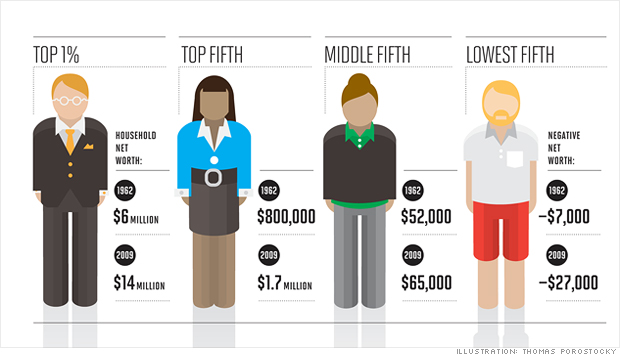With the gap between the rich and poor growing worldwide, a new study by the Organization for Economic Cooperation and Development (OECD) published Thursday suggests that the only way to reverse such rampant inequality is by implementing government measures aimed at balancing the playing field
Chief among those measures: Tax the rich and push for gender equality.
In its 34 member states, income inequality has reached record highs, the OECD found in its study, In It Together: Why Less Inequality Benefits All. The average income of the top 10 percent was 9.6 times higher than the bottom 10 percent, the OECD found. In the U.S., it was 19 times higher.
“We have reached a tipping point,” said OECD secretary-general Ángel Gurría. “The evidence shows that high inequality is bad for growth. The case for policy action is as much economic as social. By not addressing inequality, governments are cutting into the social fabric of their countries and hurting their long-term economic growth.”
“In recent decades, as much as 40% of the population at the lower end of the distribution has benefited little from economic growth in many countries,” the study found. “In some cases, low earners have even seen their incomes fall in real terms. When such a large group in the population gains so little from economic growth, the social fabric frays and trust in institutions is weakened.”

